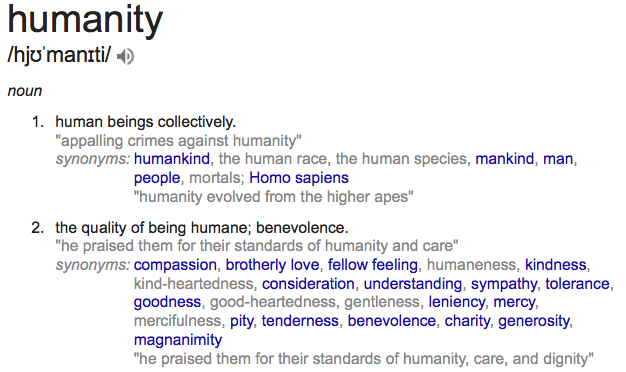I have children who are entitled, come September, to the universal free school meal programme. Department of Education advice came out last week. See here >>universal infant free school meals.
I wonder whether this will bring back a national treasure to benefit those who need it most, or is it just a Pandora’s box of problems?
I must admit to feeling ignorant. How much evidence is there, that FSM for all, benefits those who need it more than a means tested system? There is certainly evidence of need, but how do we best address that need?
All the average parent can know well, is how the new system will affect our own child’s experience of school meals.
NetMums did a survey of lots of us. There are simple practical things which policy ignores, such as 4 year-olds starting school usually start on packed lunch only for a half term to get to grips with the basics of school, without having to manage trays and getting help to cut up food. The length of time they need for a hot meal is longer than packed lunch.
But it raises common concerns too which perhaps need more attention, many of which seem to be coming in, in drips of similar feedback: reduced school hall and gym access because the space will need to be used for longer due to increase in number eating hot meals, lack of good kitchen facilities, fears over cooked food quality.
The theory that a nutritious, hot meal at lunch time for all infants, is not what will be delivered in reality. All are valid concerns, over which parents have little control.
How will this change the standards and quality of food compared with today, What considerations have been made for food waste and Is it the wisest way for state money to be best spent to help all who really need it?
Firstly, let’s take to task the nutritional decision making. New standards are now mandatory again, after having been, and then not been – instead left at heads’ discretion. Swings and roundabouts.
There is a blanket ‘low fat’ approach. The trouble is, this often also means ‘replace all fat with fake stuff for flavour’. It fails to recognise that not all fats are nutritionally equal. Cholesterol is often branded a villain, but is a necessary building block for the body. Whilst parents are lambasted for creating obesity in our children and that we don’t understand enough about food, I don’t know that I agree the Government does either.
Whilst I fully understand the popular and State-driven drive for cutting down obesity levels, cutting out fat across all the food groups may not be the key to achieving it, and improving national health. This ‘low-fat is good’ approach is controversial, and low fat in particular in dessert, replaced with artificial sweeteners, also potentially harmful, is a false choice. I believe that a gentle paleo approach to food, back to basics, is a better choice. Throw out artificial things, and eat almost everything that is natural, in moderation. Not all fats are the same. Children who are growing, need the kind of fat that is in milk. It’s not the same as chips. Sugar, yes, cut it out, but don’t replace with artificial sweeteners. Not everything served on plate should be classed food.
The whole programme of child health in school is based on sweeping generalisations, but they’re not made to apply to all schools equally. We can be told an awful lot of twaddle of how our kids should eat and exercise by state-sent leaflets in book bags. Add to that, the fact that the BMI comparison is flawed, and its communications to parents method is fundamentally flawed. (Letters saying your perfectly healthy, well proportioned child is obese, or underweight, partly due to its tool as an average cross group measure, in the National Child Measurement Programme (NCMP) anyway. But that’s another, longer story.) It’s no wonder parents are confused, not knowing the best thing to do on these school meals or not.
“On 17 June 2014 the department announced a new set of simplified standards. The new standards are designed to make it easier for school cooks to create imaginative, flexible and nutritious menus. They will be mandatory for all maintained schools, academies that opened prior to 2010 and academies and free schools entering into a funding agreement from June 2014, and will come into force from January 2015.
One significant change in the new standards is that lower fat milk or lactose reduced milk must, from January 2015 be available for drinking at least once a day during school hours. The milk must be offered free of charge to pupils entitled to free school meals, and to all pupils where it forms part of the free school lunch to infants.”
There is conflicting information about milk consumption and asthma for example, so I’d like to see more information around this, on expected benefits overall. The milk given to them to drink often is UHT, skimmed and processed. If you take all the good stuff out of the milk, is it doing the kids who drink it any good? I’d like to know. We should know the general standards and calorie and nutritional content of their meals in both the theoretical guidelines and ask at practical local level on the ground, because one hot meal at lunchtime, a balanced diet does not make. We need to know what the kids are getting, in order to try and fit it into the bigger picture of their whole intake.
Secondly, we haven’t talked much about waste.
Currently, my children every week, eat both hot lunches and packed lunches from home. I pay the school’s private provider, for regular, hot lunches three days a week, and I provide packed lunch on two. (I can see ahead of time online, what’s on the provider’s menu, and I can plan and coordinate with the rest of what and how we eat, according to our family schedule.)
From September, I will no longer be able to choose to book and pay for those meals myself. And I will no longer be able to choose for some days and not others. It’s all or nothing.
The local provider will also no longer permit parents of Reception-Year 2 children to book meals and pay for them, so even if I am fortunate enough and wanted to, I can’t opt out of the state system and pay for only those meals my children will actually eat.
The result is, if I want to continue the mix of hot and packed lunch choice I make for them, based on our family life, schedule and the nutritional content of what I want them to eat, I am required to sign them up for all five days, and either they get the imposed routine and eat more hot dinners – or carry on with our current set-up and two days a week the other hot lunches will go to waste.
However having spoken to my local school meal service today, they confirmed that after 4 weeks they plan to have a review of waste, and cut back on food provided. They won’t be paid less.
The net result, the local private provider will receive more money from the State, for my children’s hot lunches, than I pay myself now. And likely as not, there will be food wasted as well, because the providers will need to allow that some children may take it up all days.
I understand that to administer detailed choices would potentially be costly. But already we have moved admin cost back from parent to school. From September, schools will need to administer how many children are taking up the meals, and any changes in numbers week on week. Until now, I could manage it with the provider online.
However, it need not increase the admin cost to schools or state, if I could continue to book for my children, as I do now, selecting their days and meals in advance, there would be a more cost effective use of our State money, without any change in administration. It would be up to the provider to bill as used, not blanket. Surely in these days of electronic charging, not hard, and could be made without manual intervention by the state, except for regular audits, which will need to happen anyway in any well governed accounting system.
Is this the wisest use of helping those in real need?
It feels as though the Government simply doesn’t trust us to feed our children properly. I think most I know do a fairly good job. And before anyone has a go at making it a class or wealth issue, I fundamentally disagree. You get good and bad parenting and cooking skills across the board. No one is perfect. I know families who are well off but their nanny takes them to McDonalds more than one night a week for tea. Families in poverty and moving out of poverty should get support in school meals for children, but I dislike the sweeping TV benefits-hype notion that ‘poor people can’t feed their children properly.’ As if somehow, wealth is an indicator of capability or ‘doing a good job’. I do believe that parents will always try and do the best to feed their children. There are of course the rare and horrific Daniel P. exceptions whose whole care was failed by parents and State alike. They will always exist and we as a society and State need to think how they can be best addressed. But is a rushed and inflexible system of school meals going to really address those exceptions? I don’t think so. That’s not what this is about and we shouldn’t let genuine individual cases, as well as media hype of individual suffering railroad discussions.
How was it done in the past? Some were granted the support of free school meals, so if they were then, and still are now what has driven the need for change? Is this new system, in fact a huge political admission that welfare support is not enough for the many, many families where both parents work hard and still find each month a stretch to get good food on the table every day of the month? I believe so.
{ Sept 5th 2014 update confirms: 4 in 10 children are classed as living in poverty – but may not meet the welfare benefit criteria according to Nick Clegg, on LBC. That’s a scandalous admission of the whole social system failure. He believes working parents can’t afford to feed their children properly? So fix the overall income levels, welfare, social housing balance. Not FSM. The statement that schools ‘have to manage lunch anyway’, shows a failure to understand what an average primary is like. Not the best political collected response to a flagship policy which he should expect to be quizzed on in ‘Back to School’ week. Hats off to the nine year-old who nailed it.}
I welcome anything that will help families feed their children well. However, school dinners does not necessarily mean good nutrition. I remember friends who got FSM vouchers and chose chips as a main course and chocolate brownie for pud. The work by the Trussel Trust and others, shows what desperate measures are needed to help children who need it most and simply ‘a free school meal’ is not necessarily a ticket to good food, without rigorous application and monitoring of standards, including reviewing in schools what is offered vs what children actually eat from the offering.
Parents know what their children like and will eat. There is a risk some children will simply eat less if they don’t like what’s on offer.
The entitlement is also not applied to all primary children equally, but infants only. So within a family some children are entitled and others are not. Will this reshape family evening meals, where now one has ‘had a hot meal already today’ and others have not? Feedback so far seems to indicate that there are great unknowns, and that the practical application of this policy will not live up to the nice theory.
It feels like we’re being distracted, with a pretty sticking plaster on a gaping social wound.
A personal perspective
I know our family will be happy to save any money we can, having just taken on a mortgage for our first home. But we are very fortunate, and to be honest, I just feel like we’re not entitled to it. I want the funds to go where most needed. I’ll be glad to have extra money at home, but we manage without it and I’ll still send them some days with packed lunch. Yes if it were only about cash and ‘entitlement’, we could choose to give any savings to school funds or another charity, but I also hate food waste. I worry that the quality of food standards will fall, for everyone. Why will this time be different compared with standards which were so poor in the past?
Why impose this method on all without rigorous planing and evaluation and a transparent communication of that to parents and schools? My school certainly doesn’t feel that has happened or been communicated, and has had a ‘a couple of emails”. And they are a great primary school who care about things being done well. At the end of summer term, ‘it’s a bit of an unknown.’ And as for parents, we got an SMS and asked how many might be interested back in March I think. Nothing since then. If this is such a key initiative and so important for the future well being of our kids, why are parents should be being well informed.
I now have to decide, to keep my kids in hot dinners, take them out, or keep our as-is preferred mix but feel wasteful.
Where do you draw the line between support and interference in our family life?
You could say don’t look a gift horse in the mouth, but it’s what is going into the mouths of our children that matters most. Jamie Oliver did his darnedest to educate and bring in change, showing school meals needed improvement in quality across the board. What has happened to those quality improvements he championed? Abandoned in free school & political dogma. There is clearly need when so many children are growing up in an unfairly distributed society of have and have-not, but the gap seems to be ever wider. Sheffield in 2012 had a 22% child poverty rate. Where is the analysis for true quality change, rather than change for a point of policy?
Is our children’s health a political football, which is being given as a concession in this Parliament, now rushed through to get checked-off, without being properly checked out first?
I’m not sure I trust the state imposed food standards to do a good job if the funding should be reduced in future, quality will fall again, back to the bad old pre-Jamie days.
Quality must be paramount if we are now expecting to see a larger portion of society, starting out with school meals, fed by State defined standards.
It seems there were pilots and trials but we haven’t heard much about them. There is plenty of history, but where is current discussion? I agree with David Laws, on the closure of school kitchens, but this mother believes current infrastructure and education should be fundamental to this programme, not coming in later as a secondary support measure. I wouldn’t normally choose to link to the Mail, but no other broadsheet seems to have covered it since the Department for Education guidance was issued last week.
Mr. Laws MP said,
“It is going to be one of the landmark social achievements of this coalition government – good for attainment, good for health, great for British food, and good for hard working families. Ignore the critics who want to snipe from the sidelines.”
I don’t want to be a critic from the sidelines, I’d like to be an informed citizen and a parent with choice. [and please, stop using hard working families, it indicates some sort of value judgement, which is borrowed from the coalition partners and not in a good way]
This is a consumer choice and health issue, having an effect on a practical aspect of my parenthood. It’s not a tenet of education substance.
Like these people and their FOIs, I want to ask and understand. I have questions: How will it affect the majority? Will this have a positive effect on the nutrition children get, which may be inadequate today? What guarantees are there that adequate food safety and quality issues are properly and independently governed? Will it be overall less costly and beneficial to children and parents? Will it reduce stigma? Will it increase hot dinners consumed and reduce packed lunch intake? (So much less healthy, we are told.) Is the cost worth the benefit for a minority or even for the many? Will it benefit the health of all our children?
Free, but what will it really cost?
Honestly, I don’t know. But that’s my main concern. It’s being done in such a rush without due transparency and communication, I don’t think anyone knows.



![Launching genomics, lifeboats, & care.data [part 2]](https://jenpersson.com/wp-content/uploads/2014/08/rosetta_image-672x372.jpg)
